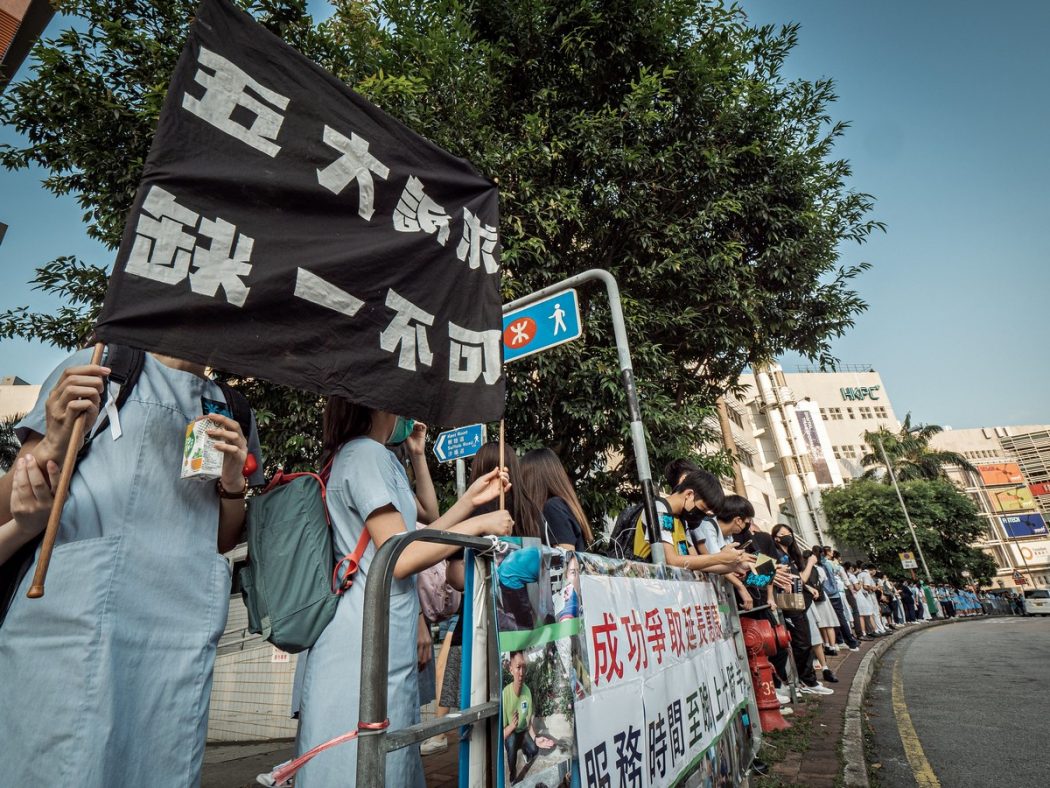Who is going to pay the dearest price for Beijing’s crackdown on Hong Kong’s core values and freedoms?
The answer is the same now as it was in 2012 when an unknown teenager by the name of Joshua Wong Chi-fung led a successful campaign against the Education Bureau’s proposed moral and national education curriculum, which students rightly saw as a high-handed attempt to brainwash them into becoming slavering devotees of the Chinese Communist Party.

Wong and the student activist group he founded, Scholarism, whipped up a storm of opposition to the proposal, at one point bringing more than 100,000 protesters into the streets to demand its withdrawal.
Those were the good old days when the Hong Kong government sometimes actually listened and responded to the concerns of the people. The proposed mandatory curriculum was shelved, independent thinking was upheld in the city’s classrooms,
Wong went on to become the youthful international face of Hong Kong’s pro-democracy movement and it seemed the city’s younger generation still had a fighting chance.
But here we are eight years on and Hong Kong’s education system—from its primary through its tertiary institutions—has never been more imperilled; nor have its young people ever been more threatened and bullied by the very public officials who are supposed to be guardians of the freedoms they were guaranteed in the Sino-British Joint Declaration and the Basic Law.

There is a reason 40 per cent of the 8,981 people arrested in anti-government protests that have raged over the last year were students, many of them still in secondary school. According to police, there were even eight primary students among those arrested.
From the start, young people have been the engine of this movement, just as they were during the 79-day pro-democracy Occupy campaign back in 2014. That’s because the future once promised to them is being snatched away by a callous bunch of powerful old men in Beijing and their Hong Kong marionettes, from Chief Executive Carrie Lam Cheng Yuet-ngor on down.
This snatching was formerly done in small, occasional grabs that involved a broken promise here and an “interpretation” of the Basic Law there. Now and then the city would receive a concerning shock from the north, take the blow, regain balance and carry on.
Lately, however, the betrayal of Hong Kong—and more particularly of a younger generation that once dared to believe in the “one country, two systems” mantra that was supposed to protect their future—is being played out on a much grander scale.

Soon we will have a mainland-written national security law that could see many more of our young people locked up in our jails (and maybe theirs!) rather than learning how to think and act for themselves in our schools.
And, despite Scholarism’s victory back in 2012, those schools are now well on their way to imposing a brand of education that, following the general trend, is severely circumscribed by bureaucrats also doing Beijing’s bidding.
Education Secretary Kevin Yeung Yun-hung has called on schools to discipline students and teachers who take part in any future general strike or class boycott over the national security law that the Standing Committee of the National People’s Congress will soon impose on the city.
The bureau is also asking schools to devise long-term counselling and disciplinary regimens for students who have been arrested for being part of the past year’s protests and to “call the police” if students are deemed to have breached the recently passed national anthem law requiring them to sing respectfully an anthem that many of them do not respect.
Not only do students see what’s coming; so, too, do their teachers.
According to a recent survey conducted by the Professional Teachers’ Union, over a third of the teachers polled reported being instructed by their supervisors to avoid political topics on campus.
That’s alarming news—but far worse: 90 per cent of teachers felt their classroom autonomy was being undermined, and 80 per cent said they avoided discussing sensitive topics in class.
Hong Kong’s school system has become just another battleground in its ongoing political wars.
Bad for students, bad for teachers and absolutely tragic for the future of our city.
